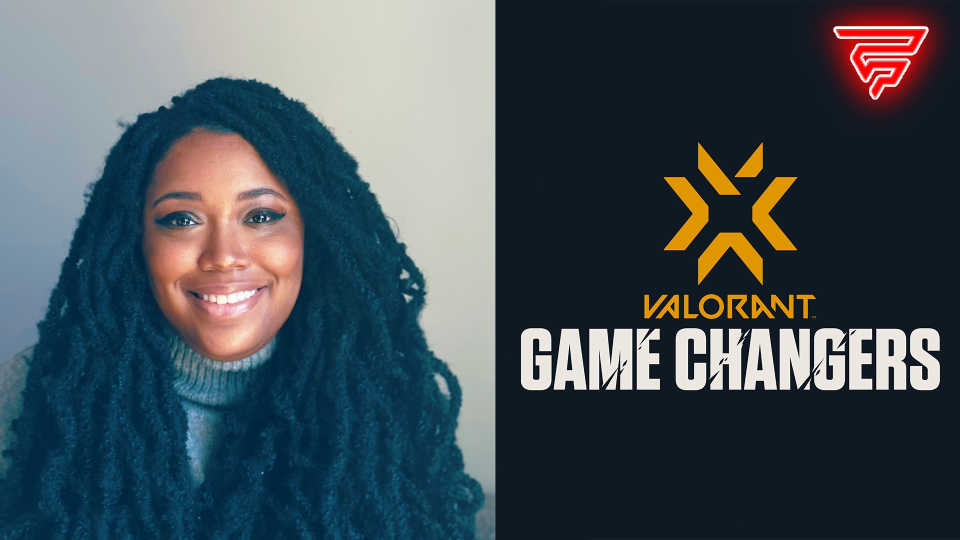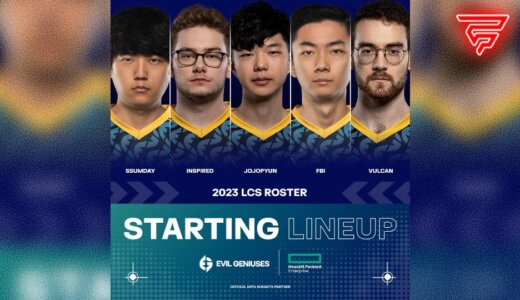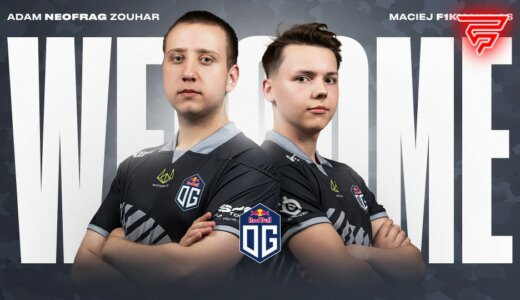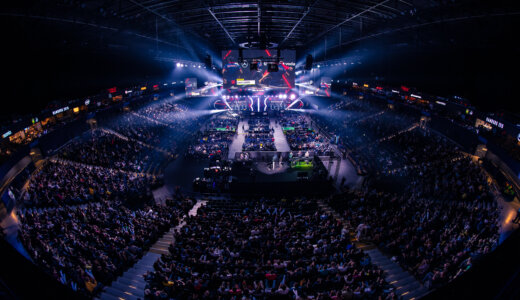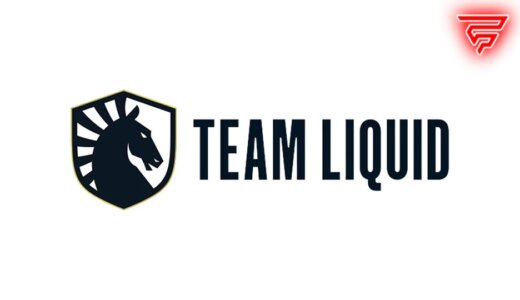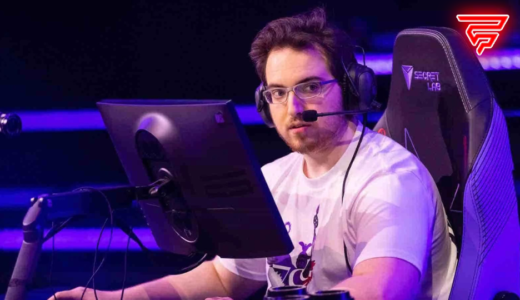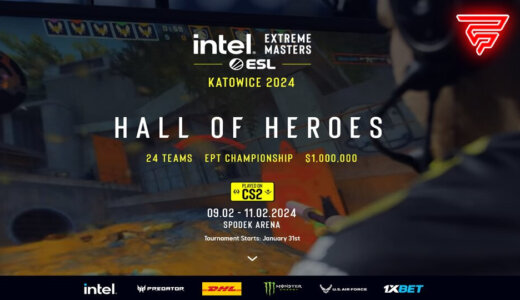VCT Game Changers, Riot Game’s competitive VALORANT circuit for women, is just a day away from hosting its first global Championship, and needless to say, it is a huge accomplishment not only for the title but also for the esports scene as a whole.
Besides creating a thriving space for women in VALORANT, the project’s success prompted the creation of numerous female teams, as well as the development of women’s scenes in other esports titles such as CS:GO and League of Legends.
Nearing the conclusion of its second season, Game Changers is already making plans for its third year. Based on the words of Ashley Washington, Head of VCT Game Changers EMEA, the following season is going to be about establishing Game Changers’ foundation and maturity, introducing more cohesion to the format, and creating a clearer path to pro for women in the space.
Ahead of the start of the VCT 2022 Game Changers Championship in Berlin tomorrow, Fragster spoke with Ashley about the effects Game Changers is having within the game and on the industry as a whole, we peeked into Riot’s plans for future seasons, but we also discussed the hurdles women face in esports and gaming and what are some steps necessary for creating an inclusive environment for women.
The wait is almost over ⏳
The #VCTGameChangers Championship starts in 24 HOURS!Check out the schedule at https://t.co/H7pUmuyiWM pic.twitter.com/FHX4ZPpSaW
— VALORANT Champions Tour (@ValorantEsports) November 14, 2022
Going professional wasn’t for me
Fragster: Ashley, let’s start with an introduction for our readers. Can you tell us something about yourself and your journey of becoming the Head of VCT Game Changers EMEA?
Ashley Washington: I was born into a family of gamers, so I started playing games when I was really young, but I didn’t have my own console till I was about 11. First I got into single-player horror games and eventually, I found my way into Halo, which is where I started playing competitive shooters.
And I never really stopped. I kept playing and as I got older, I realized that I wanted to spend my life with games. I didn’t end up going competitive myself, but I did study game design at New York University. After I graduated, I took a couple of years to find my footing and moved to Berlin where I ultimately started working in games first as a journalist and later as a data scientist. Now, I’m a product lead working with Game Changers.
All of my hobbies were his first—gaming included! There’s a lot my current job and his old one have in common. He doesn’t really get esports but he’ll get there.
We’re overdue for new photos but I will be home to take some soon. ❤️ pic.twitter.com/YxdRpgHeP1
— Ashley Washington (@shlywshngtn) September 23, 2022
You mentioned that you didn’t end up going the way of a professional player. Have you considered it?
The interesting answer to that is no. Although I really wanted to be good at games, my experience playing games was so negative that I decided that it wasn’t for me. But it does put me in the unique position of having a very good idea of what the women who are playing are going through on a regular basis and how much it really means that they’re still here.
So you think that if circumstances were different and the environment in gaming was better, you might have considered becoming a professional player?
Possibly. I’m a competitive person at heart and if I had a better setup and more supportive friends who were also doing something similar, maybe it could have ended up differently for me. Maybe if I had seen it happen more often, because one of the reasons I didn’t go into gaming as a career was that I didn’t see many women doing it.
Changing the Game
Can you tell us something about your role within Game Changers?
The simplest way to describe my job is putting the whole thing together. I develop a strategy and plan it, usually I’m working with other people in the team to execute those plans, but for the most part, I sit at the top, dreaming up what it should look like, and listening to players and teams about how they feel. And figure out how this all fits together with what we wanna do next.
Really appreciating the great conversations I’ve had so far. The offer still stands. 💕 https://t.co/j6xUkx7A6q
— Ashley Washington (@shlywshngtn) September 21, 2022
A whole new esports scene for women has emerged thanks to Game Changers, but how does Riot see its own contribution to the industry? How would you reflect on what you’ve managed to create so far and what kind of impact it has?
Our biggest contribution is to shine the light not only on the vast community of women that are interested in VALORANT but also on the situation that they’re in. There are many factors behind why they’re not so visible and I think one of the responsibilities of having an initiative like Game Changers is to expose that. A lot needs fixing in the community itself and that’s where Game Changers has had a great impact so far. As we’re heading into year three, it’s been really important to be able to look back and see that people are interested and that they’re showing up.
In 2022, Game Changers saw a notable increase in participating teams. How would you say the development of the scene is going in EMEA? Is it in accordance with expectations, did you encounter any challenges along the way?
When it comes to expectations, it’s more about: “Did we set up a space where all of these women can believe in it and engage with it?” This is probably aligned with my expectations the most because we did. But what was maybe less expected, but super positive, is that the growth itself has happened so quickly. When you see growth that quick, you wonder what was the magic ingredient.
As far as challenges go, one of the things that I’ve been most interested in improving is seeing more teams from underrepresented regions pop up. We actually had a couple of MENA teams this past series, which was really great to see. There’s obviously a reason why there isn’t more, and I would love to figure that out.
What kind of impact is Game Changers having directly on the game?
Since I’m not on the game team itself, I’m not privy to that insight, but as an esports person, I can say what I see when looking at how this actually impacts VALORANT.
I had the opportunity to attend VALORANT Champions Istanbul about a month ago and I was impressed to see that the crowd was a healthy combination of women and men. Unlike in other esports events I’ve visited before, there was no part of the room where I was only seeing men. And with this kind of turn at the events, we can definitely say that more women are playing VALORANT and more women are engaging with esports content related to the game.
And I’m proud of that because this means that we’re having an impact on the VALORANT community itself, which I hope, makes the gaming experience itself more positive, as this “blend of identities” becomes normalized.
Focusing on the positive before the weekend begins, I just want to express how perpetually grateful I am to be doing what I am doing with the people that I get to do it with. I've met so many amazing and supportive players, admins, talent and community in just under five months.
— Ashley Washington (@shlywshngtn) October 21, 2022
Game Changers focuses on fostering an inclusive environment for women and creating new opportunities to kickstart their path to professional gaming. What exactly this incorporates? Besides tournament organizing, are there any other initiatives or ways how Games Changers is helping female teams and players?
I cannot answer this in full because it has a lot to do with our plans for next year, but one of the things that are really important to our strategy and the process of supporting women in esports is acknowledging the fact that this problem is not in a vacuum. The underrepresentation of women in esports definitely goes beyond VALORANT.
So one of the things that I was trying to do when approaching how we wanna set things up moving forward is to figure out how exactly we can take it beyond the game or at least beyond the tournament and figure out how we can educate and engage with the community in other ways. This is something that we are looking at, but I can’t get specific about that just yet.
The win is trying
Although the female esports scene is currently seeing growth, the number of professional female players is still quite low. How hard is it for aspiring female players to go pro and what are the hurdles they face?
There are many problems that women face when trying to become professional esports players, but I’ll focus on what I saw and what discouraged me in a lot of ways. First of all, a lot of people are skeptical of gaming as a career, which is often due to a lack of education, because working in gaming doesn’t always mean playing. I definitely faced a lot of critical perspectives when I was trying to figure out how to make gaming my career.
I think that this is a step one issue for all gamers and then it becomes even harder when you’re a woman because no one’s expecting women to make a career out of gaming. Maybe they’re already skeptical when it’s a guy, but then when a woman tries to do it, she will always have to face extra layers of the stereotypical stuff such as “Is it feasible for a woman to like be a pro gamer? How will she start a family or a proper career after that?”
On top of that, you have sometimes a less obvious barrier of constantly being underestimated once you’re actually in it. No matter how many years you spend there or how good you are, there’s probably always gonna be someone doubting you. And maybe also assuming that you’re less likely to be the best option for a team. You’re always gonna have to work a little harder in that respect to find the right opportunities and get the right exposure, or even just to get enough time to play in order to gain the experience you need to be considered a professional.
supporting women in esports doesn’t take away anything.
inclusivity in esports is a win for everyone.
— XSET (@XSET) December 23, 2021
What advice would you give to those women looking to possibly try the career path of an esports athlete?
I always look at this question from a personal angle, and I think back to when I decided that it wasn’t for me, which is absolutely okay. Looking at a difficult space and being like “I know me. This is not for me.” is totally valid. I think it’s really important to preface this answer with that because my advice is normally: “Don’t let lack of representation or lack of opportunity get under your skin, because this is often not the end of it.”
With programs like Game Changers, it’s easier to find that representation, the kind of thing that says “You can do this. Someone else has done this before too, and they dealt with similar things, and it is absolutely possible to get through it”. It is absolutely possible to find your place, and even if that place isn’t there, it is absolutely possible to carve that place out for yourself.
The industry is not yet in the best shape to welcome a bunch of women, but it can get there. That’s what game-changing is. Even if it takes the brute force of a bunch of women simply being there, it will happen. So my advice is to just do it. Try. The win is trying. It’s not winning every day, some days are gonna be a loss, but the fact that you’re there, no matter how long you’re there, it’ll be just enough for the next woman to see you and know that they can do it too. Show up because you can. You can do it.
What the future holds
The first Game Changers World Championship is starting soon. What are your feelings and expectations ahead of the event?
I’m so excited! We make a lot of jokes about EU being better than NA, but I’m just really excited to see if we’re right. Is EU better than NA? Or EMEA rather, because we have some really great Turkish teams. Global competitions are a really great way for us to see where our strengths are and to gain that same community and competitive experience that we see in the rest of VCT.
VALORANT Champions Tour and @riotgamesmusic present the #VCTGameChangers Championship audio visualizer
"All Eyes On Me" ft. @jeandeauxmusic & @WHIPPEDCREAM 🔥🏆Watch the top VALORANT women's teams face off in Berlin! November 15 – 20. pic.twitter.com/nsD13rXWOy
— VALORANT Champions Tour (@ValorantEsports) November 8, 2022
You’ve already touched up on some of the future plans for Game Changers, is there something you can reveal? What can we expect in future seasons?
I can talk a bit about the vibe we’re going for in year three of Game Changers. It’s gonna be about establishing its foundation and maturity, introducing more cohesion to the format, and creating a clearer path to pro for women in the space. It will definitely be about leaning into some of the nuances of our community. What we’re hoping to do moving into 2023 is figure out the best way to address the variety of needs for the community that we’ve grown so far.
Finally, what is the ultimate goal of Game Changers? Is it a fully-fledged professional esports scene equal to the men’s scene? Or could we eventually see a mixed scene?
It’s something that I think about a lot and what sets short-term planning and long-term planning for Game Changers apart because like many people have pointed out, there’s no physical difference that would require women to play separately. At first glance, it doesn’t necessarily make sense to solidify a setup just for women, but this would be ignorant of the many different complexities and issues that make it so that a separate space was needed in the first place.
So in the long-term, my first inclination is not to say yes or no, because I think that if we doubled down on that, we’d also have to make the choice of whether or not the path that we wanna set to a diversified ecosystem with mixed rosters is really supported by doubling down on the separation of genders in the VALORANT ecosystem. It may be better served by us treating Game Changers as a space for women to develop those skills and then move on once they’re ready to be in the wider VCT ecosystem, rather than locking them in a space and then hoping that the rest of the ecosystem catches on and mixes things on its own.
There are many things to think about where a lot of controversial solutions come to mind, but for now, I’m focused on creating space for women who are interested in playing VALORANT professionally, period.
Header: Ashley Washington / Riot Games
